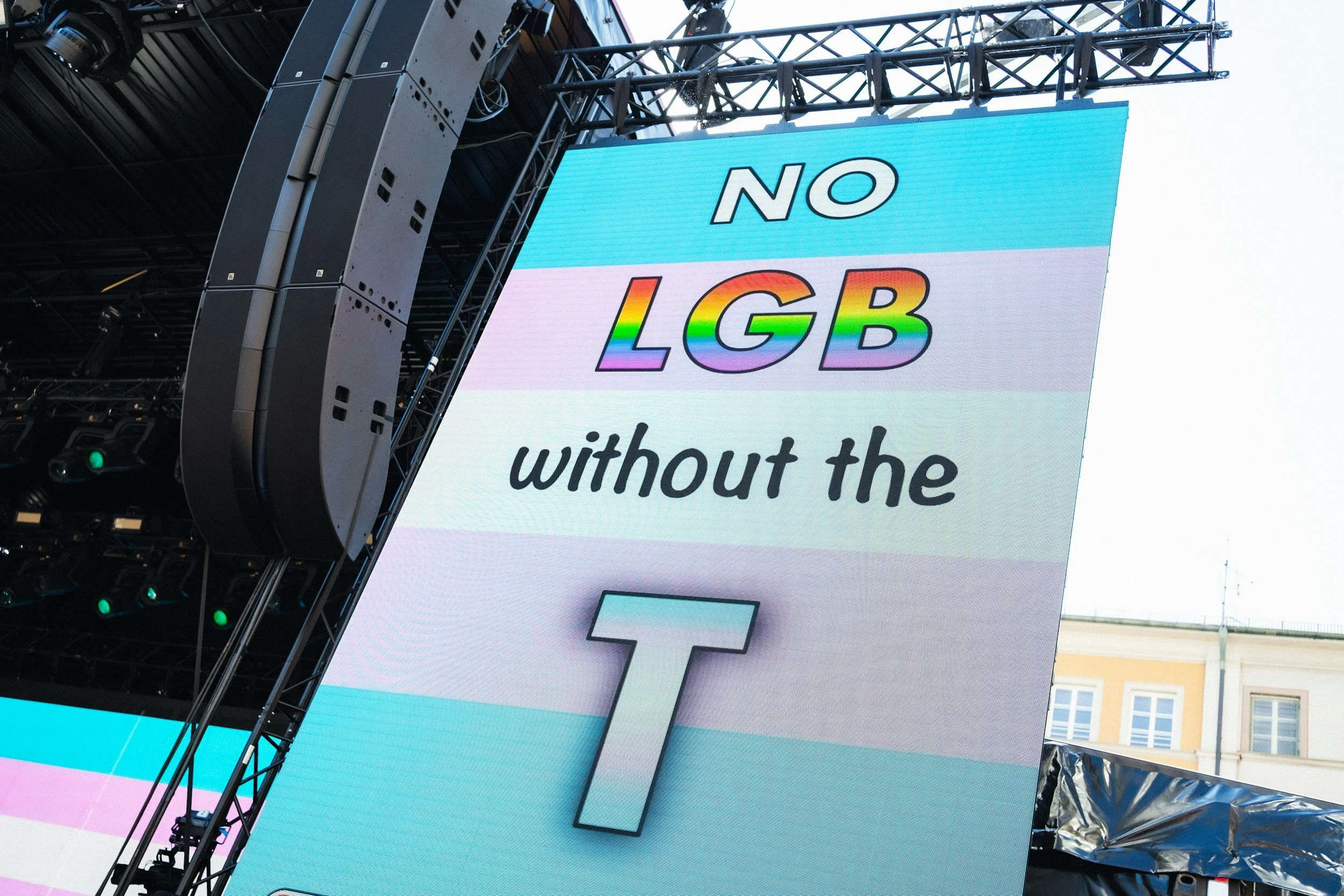
Why Acceptance Isn’t Enough: A Psychologist’s Perspective on LGBTIQA+ Mental Health Care in Australia
by Louise Fletcher, Psychologist
When "Acceptance" Becomes Harmful
In my work as a psychologist in Australia, I often hear variations of the phrase: “I accept LGBTIQA+ people—I just have my own beliefs.” This kind of qualified acceptance, often framed as a matter of “freedom of opinion”, may appear neutral or benign. But in clinical settings, it can be deeply damaging.
Research shows that non-affirming or conditionally accepting environments perpetuate shame, invisibility, and internalised stigma in LGBTIQA+ clients—even when overt hostility is absent (Singh & Dickey, 2017; Austin & Craig, 2015). When clinicians default to neutrality or personal values over professional ethics, they may unintentionally communicate that a client’s identity is debatable, morally questionable, or conditionally valid.
This passive form of rejection is associated with:
Increased psychological distress, particularly in trans and gender-diverse individuals (Hill et al., 2021).
Avoidance of care, due to fear of invalidation (Riggs et al., 2020).
Exacerbation of minority stress, which contributes to anxiety, depression, and suicidality (Meyer, 2003; Pachankis et al., 2015).
Mental health practice must not be ethically neutral. We are bound by duty of care to provide evidence-based, trauma-informed, and identity-affirming support. When acceptance is conditional, it reinforces harm—and this is incompatible with our clinical responsibilities.
Acceptance Is Passive – Affirmation Is Active
Saying “I accept you” often implies passive tolerance, rather than active engagement. True affirmation goes further: it validates identity, addresses minority stress directly, and celebrates resilience.
Affirmative therapy has been shown to improve outcomes by reducing internalised stigma and enhancing emotional regulation, especially in queer and trans clients (Pachankis et al., 2015; Austin & Craig, 2015).
Cultural Competence Is Critical
Many clinicians, despite good intentions, are not adequately trained to support LGBTIQA+ clients. Misgendering, misunderstanding pronoun usage, or hesitating to explore sexuality and gender in sessions can all be experienced as invalidating.
A national study of Australian psychologists found significant gaps in preparedness for working with trans and gender-diverse clients (Riggs et al., 2020). Ongoing professional development in LGBTIQA+ cultural safety is not optional—it is ethical practice.
Systemic Discrimination Still Impacts Mental Health
Acceptance at an individual level does not protect clients from structural harm. LGBTIQA+ Australians continue to experience:
Discrimination in employment and healthcare.
Higher rates of homelessness and family rejection.
Legal and social barriers to gender affirmation.
Findings from Private Lives 3 show that 73.2% of LGBTQIA+ people report high or very high psychological distress, with trans participants reporting some of the poorest mental health outcomes in the nation (Hill et al., 2021).
Trauma-Informed Practice Is Essential
Many LGBTIQA+ clients present with trauma rooted in identity-based harm—such as bullying, religious rejection, or attempted conversion practices. These experiences are not peripheral; they are often central to the client’s mental health needs.
Trauma-informed care must include awareness of historical and ongoing stigma, and avoid replicating that trauma in the clinical setting (Alessi et al., 2020; Salerno et al., 2021).
Intersectionality Cannot Be Ignored
LGBTIQA+ people do not exist in isolation from other identities. Aboriginal and Torres Strait Islander LGBTIQA+ clients, those from culturally diverse backgrounds, or living with disabilities, often face compounded marginalisation.
Mental health support that is “inclusive” in name but lacks an intersectional lens will fail to meet the needs of these individuals (Hopwood et al., 2021).
Trust Requires More Than Good Intentions
Many LGBTIQA+ clients approach therapy with justified caution. They have been harmed by clinicians, rejected by services, or pathologised by systems.
To build trust, services must offer:
Inclusive language on forms.
Pronoun awareness and flexibility.
Visible symbols of safety (e.g., pride flags, affirming posters).
Clear anti-discrimination policies and active staff training.
Visibility matters. So does action.
Representation and Structural Change Are Needed
The lack of LGBTIQA+ representation in the mental health workforce remains a barrier. So too does the lack of structured, evidence-based training in queer and trans mental health.
We must advocate for:
Greater inclusion of LGBTIQA+ lived experience in training and policy.
Funded cultural safety education.
Integration of affirmative frameworks into core mental health curricula.
Conclusion: Affirmation is Clinical Best Practice
LGBTIQA+ people in Australia deserve mental health services that are not only inclusive—but affirming, informed, intersectional, and safe. We must reject the false neutrality of conditional acceptance and lean into our ethical and clinical duty to provide genuinely supportive care.
Mental health is not just about reducing distress—it is about creating environments where people can thrive in the fullness of who they are.
Alessi, E. J., Dillon, F. R., & Kim, H. M. (2020). Development of a trauma-informed mental health group intervention for LGBTQ+ survivors of human trafficking. Journal of Gay & Lesbian Mental Health, 24(4), 407–425. https://doi.org/10.1080/19359705.2020.1757456
Austin, A., & Craig, S. L. (2015). Empirically supported interventions for sexual and gender minority youth. Journal of Clinical Child & Adolescent Psychology, 44(6), 895–915. https://doi.org/10.1080/15374416.2014.953651
Hill, A. O., Bourne, A., McNair, R., Carman, M., & Lyons, A. (2021). Private Lives 3: The health and wellbeing of LGBTIQ people in Australia. ARCSHS, La Trobe University. https://www.latrobe.edu.au/__data/assets/pdf_file/0009/1211402/Private-Lives-3.pdf
Hopwood, M., Ellard, J., Treloar, C., & Lea, T. (2021). The experiences of sexuality and gender diverse Aboriginal and Torres Strait Islander Australians accessing mental health services: A qualitative systematic review. International Journal of Environmental Research and Public Health, 18(22), 12128. https://doi.org/10.3390/ijerph182212128
Leonard, W., Pitts, M., Mitchell, A., & Patel, S. (2012). Private Lives 2: The second national survey of the health and wellbeing of GLBT Australians. La Trobe University. https://www.latrobe.edu.au/__data/assets/pdf_file/0003/94391/PrivateLives2Report.pdf
Meyer, I. H. (2003). Prejudice, social stress, and mental health in lesbian, gay, and bisexual populations: Conceptual issues and research evidence. Psychological Bulletin, 129(5), 674–697. https://doi.org/10.1037/0033-2909.129.5.674
Pachankis, J. E., Hatzenbuehler, M. L., Rendina, H. J., Safren, S. A., & Parsons, J. T. (2015). LGB-affirmative cognitive-behavioral therapy for young adult gay and bisexual men: A randomized controlled trial of a transdiagnostic minority stress approach. Journal of Consulting and Clinical Psychology, 83(5), 875–889. https://doi.org/10.1037/ccp0000037
Riggs, D. W., Power, J., & Perlesz, A. (2020). Transgender people’s experiences of mental health services in Australia: A review of the literature. Australian Psychologist, 55(3), 187–197. https://doi.org/10.1111/ap.12434
Salerno, J. P., Pease, M., Devadas, J., & Williams, N. D. (2021). Intersectionality and health inequalities for LGBTQ+ people: A systematic review of reviews. International Journal for Equity in Health, 20(1), 87. https://doi.org/10.1186/s12939-021-01421-7
Singh, A. A., & Dickey, L. M. (2017). Affirmative counseling and psychological practice with transgender and gender nonconforming clients. American Psychological Association. https://doi.org/10.1037/14957-000
Strauss, P., Cook, A., Winter, S., Watson, V., Wright Toussaint, D., & Lin, A. (2017). Trans Pathways: The mental health experiences and care pathways of trans young people. Telethon Kids Institute. https://www.telethonkids.org.au/globalassets/media/documents/brain--behaviour/trans-pathways-report-web.pdf
Ullman, J., et al. (2021). Writing Themselves In 4: The health and wellbeing of LGBTQA+ young people in Australia. ARCSHS, La Trobe University. https://www.latrobe.edu.au/__data/assets/pdf_file/0007/1185884/Writing-Themselves-In-4-National-Report.pdf









